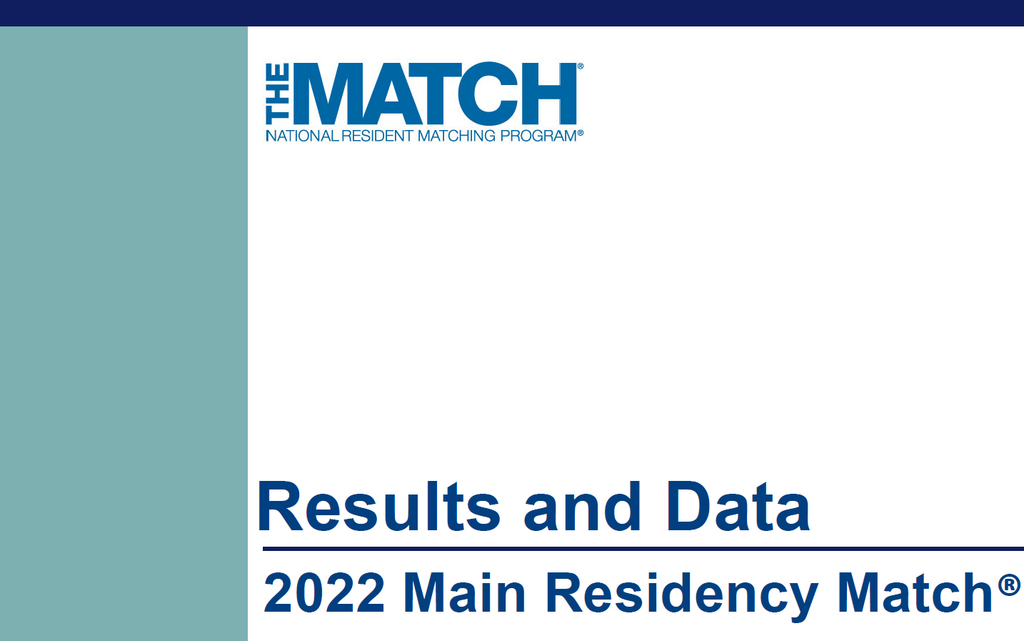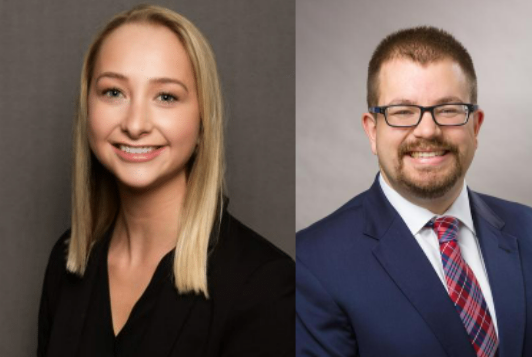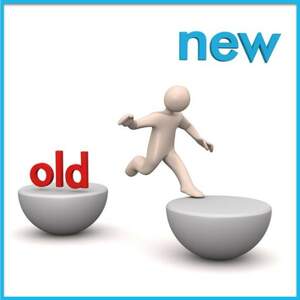June 2022 Illuminator
Shining a Light on Match News that Matters
This issue of the Illuminator includes:
- 2022 Main Residency Match Results and Data report
- Accessing 2022 Main Residency Match reports
- Proposal submission deadline for the NRMP conference
- Lessons Learned from serving on the NRMP Board of Directors
- June is Pride Month
- Upcoming deadlines
Results and Data Book for the 2022 Main Residency Match is Now Available

The National Resident Matching Program® (NRMP®) has published its 2022 Main Residency Match Results and Data report, the premier data resource for the Main Residency Match. The report documents matches by specialty and applicant type, trends in applicant match rates, applicant preferred specialty, and the Match Week Supplemental Offer and Acceptance Program® (SOAP®).
The 2022 Main Residency Match included an all-time high 39,205 total positions. Of those, 36,277 were PGY-1 positions, also a record high and the 19th consecutive annual increase in the number of PGY-1 positions offered in the Match. There were 1,083 more PGY-1 positions offered compared to 2021, and more than half the increase was attributable to growth in Family Medicine and Internal Medicine.
After the matching algorithm was processed, 2,262 of the 39,205 total positions were unfilled. Of the 2,262 positions offered through the SOAP, 2,111 positions were filled. Only 151 SOAP-offered positions remained unfilled after SOAP, resulting in an overall fill rate of 99.6 percent.
View and download the 2022 Main Residency Match Results and Data report.
NRMP News and Reminders
Download the 2022 Main Residency Match Reports
The NRMP reminds 2022 Main Residency Match participants that the deadline to download reports is June 30, 2022. After June 30, the R3 system closes for the 2022 Main Residency Match and requests for Match reports submitted will incur a $200 fee per report.
Final Reminder for Conference Proposal Submissions!
The NRMP stakeholder conference, Transition to Residency: Conversations Across the Medical Education Continuum, is still looking for your proposal submissions! The deadline to submit a proposal is Tuesday, June 7. Visit our proposal submission portal to learn more and submit your proposal today.
Lessons Learned from Serving on the NRMP Board of Directors
We recently interviewed NRMP Board Member and future Emergency Medicine Resident Sydney Miller, DO, and NRMP Board Member and Epilepsy and Clinical Neurophysiology Fellow Christopher Traner, MD, about the valuable lessons they have learned from serving on the Board of Directors and what has surprised them most about the NRMP.

NRMP: Why did you want to serve on the NRMP Board of Directors?
Dr. Miller: I wanted to serve on the NRMP Board because I desired to bring my osteopathic perspective to the Match process and advocate for all medical students under the single accreditation system. When I was applying to the Board, the single accreditation system had just begun, so I was excited about the opportunity to share my osteopathic medical student experience. After serving my local medical school and university community as President of my medical school class, I hoped to try something new by serving on a national organization that reaches every medical student applying to residency programs in the U.S. I knew I had a lot to learn!
Dr. Traner: The Main Residency Match was a fascinating, stressful, and absolutely amazing period in my medical education timeline. The emotions experienced during that process are so unique and I am always the type of person that wants to guide others using my own experiences. Additionally, I saw a lot of things during the process that I thought could be improved for the betterment of others. So naturally, when an opportunity presented itself to become more involved in an entity within the UME-GME transition, I jumped at the chance. I applied twice since I was not chosen the first time because I felt so strongly about being an advocate for the learners on the NRMP Board.
I also live by the creed “every opportunity in life is one to learn from.” I knew that serving on the NRMP Board would be educational for me not only to gain insight from others about the UME-GME transition process, but also something about how to best support learners through the process given my ultimate career goal was to be a residency program director!
NRMP: What is the biggest misperception medical students or residents have about NRMP and the Match?
Dr. Miller: A large misperception that I’ve heard is that the NRMP and the Match are the only players in the transition process. The NRMP does not have a current role in applications, interviews, or preference signaling, and I think many students get this confused. The NRMP is one of many organizations committed to improving the residency transition experience for medical students, but is not the only one. I’ve also noticed that students are frustrated with the expenses and stress of the application, interview, and Match process, and as a student who recently went through it all, I felt it too. The phrase, “the Match is broken” has been tossed around by students during my role as Student Director on the Board. While I agree that there are many components of the entire transition from UME to GME that could be improved, my time on the Board has shown me that the matching algorithm continues to perform effectively.
Dr. Traner: The biggest misperception stems from the fact that as an applicant, to you the whole process (applications, letters of recommendation, personal statements, interviews, rank lists, and the Match) are all one entity. However, the thing I don’t think that students truly appreciate is that the NRMP has no control over the process until the rank order lists begin. The facilitation of the Match with 100% integrity is always the goal of the NRMP and one that has succeeded for many years, including the two years that I have been involved on the Board. However, given all the controversy and advocacy about changing the UME-GME landscape – I think people lump the NRMP into issues regarding the application inflation or interview hoarding, while the NRMP may have an opinion or suggestion on these issues, these issues are outside of the NRMP. That being said, I can tell all students that the NRMP is firmly invested in being a part of the solution and conversation for this UME-GME transition with that one singular focus – how will this work for the betterment of the applicants – in mind.
NRMP Connects
The NRMP is pleased to share newsworthy initiatives and happenings within the organization and GME community to foster conversations and improve connectedness.
In honor of Pride Month, we wanted to share an organization that may be of interest to you – GLMA: Health Professionals Advancing LGBTQ Equality.

GLMA is a national organization committed to ensuring health equity for lesbian, gay, bisexual, transgender, queer (LGBTQ) and all sexual and gender minority (SGM) individuals, and equality for LGBTQ/SGM health professionals in their work and learning environments. As the world’s largest and oldest association of lesbian, gay, bisexual, transgender and queer (LGBTQ) healthcare professionals, GLMA was founded with the mission of ensuring equality in healthcare for LGBTQ individuals and healthcare professionals.
The GLMA has educational resources available for healthcare professionals, patients and medical schools on their website, and we encourage you to check out their Twitter for the latest news and updates from the organization.
Upcoming Dates

Radiology, Surgical Oncology
- June 1, 9:00 p.m. ET: Rank Order List Certification Deadline
Female Pelvic Medicine & Reconstructive Surgery, Headache Medicine
- June 8, 12:00 p.m. ET: Rank Order List Opens
Radiology, Surgical Oncology
- June 15, 12:00 p.m. ET: Match Day
Surgical Critical Care
- June 22, 12:00 p.m. ET: Match Opens
Anesthesiology, Obstetrics & Gynecology
- June 29, 12:00 p.m. ET: Match Opens
Careers at NRMP
NRMP is growing to meet the needs of the community. We currently have two open positions:
- Product Manager
- Statistical Programmer Analyst
For more information, please visit our Careers page. NRMP is an equal opportunity employer.
